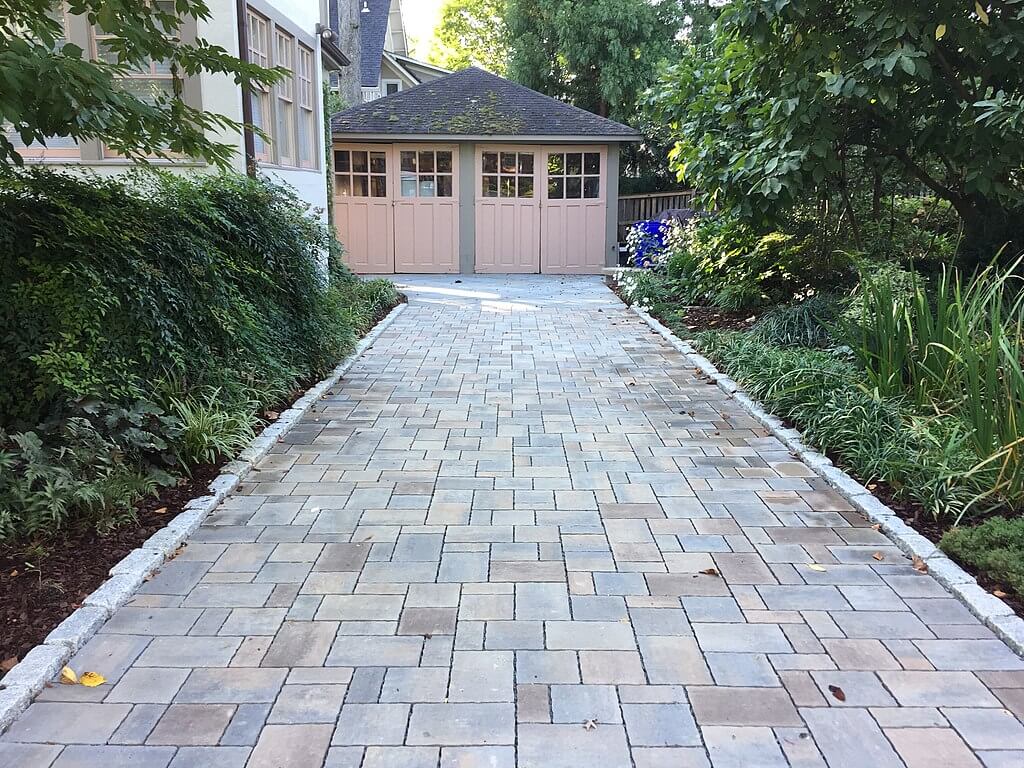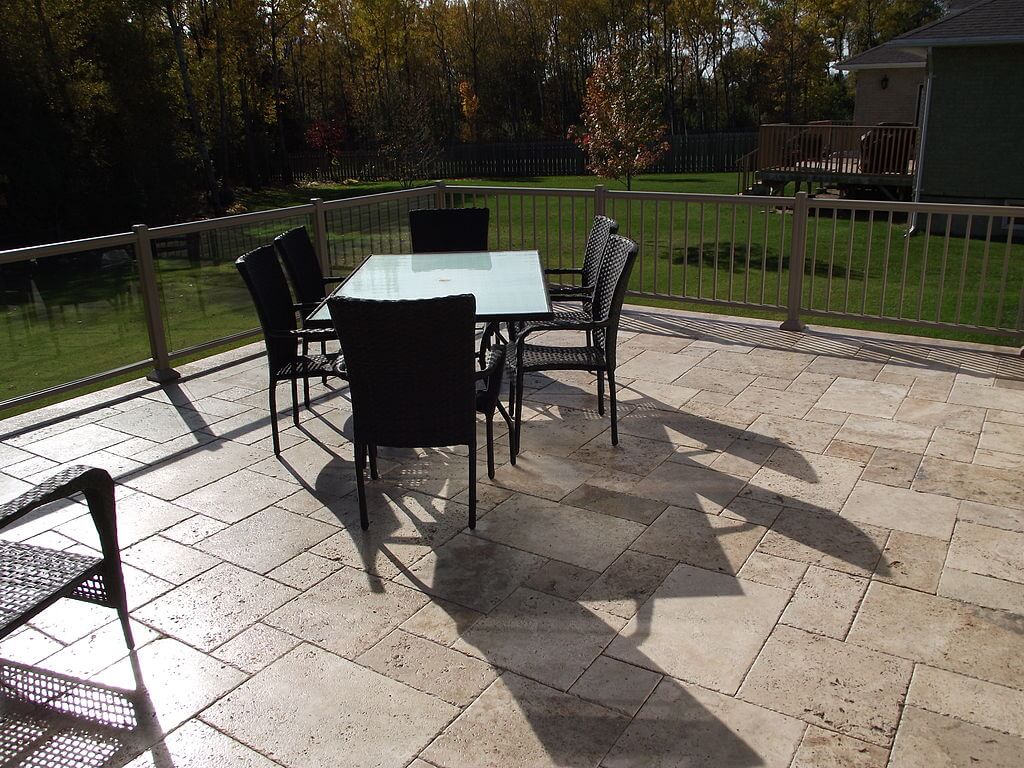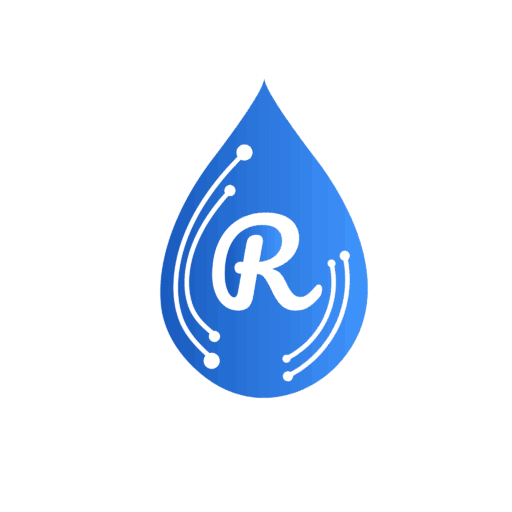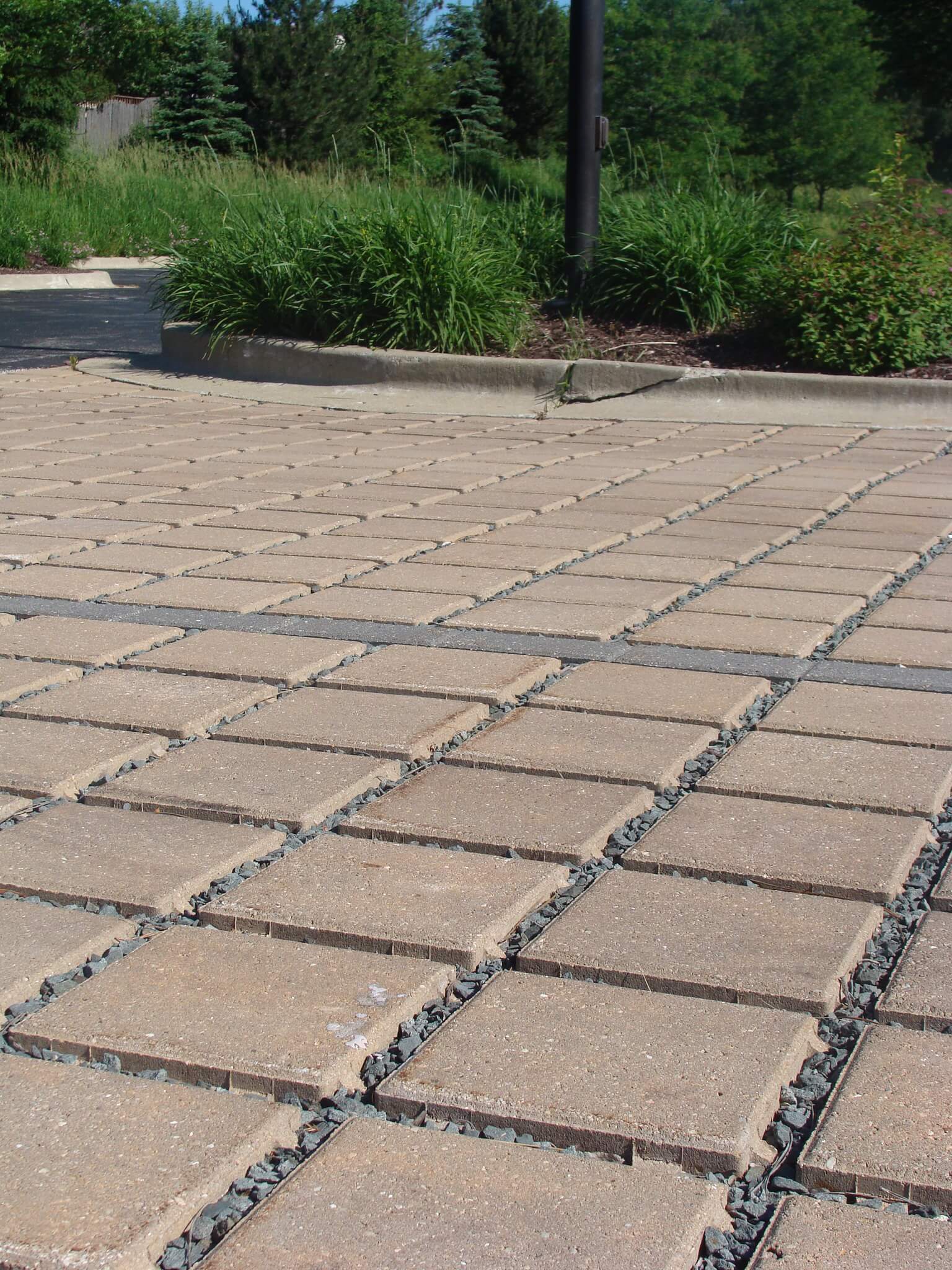If you’re calculating concrete driveway costs, consider cost effective permeable pavers
Upgrade your old driveway or patio with savvy permeable pavers. Permeable pavers, sometimes called pervious pavers, are not only beautiful but help keep our waterways clean and are the most cost-effective than traditional concrete pavement. They are key drivers in sustainable building and amp up your curb appeal. 76% of agents agree that curb appeal is the number one thing you can do to make your home more appealing.
In 2020 alone, adding in pavers and decks to a property saw a 25% increase in home improvements. With more people working from home it made sense to improve outdoor areas. Permeable pavers for driveways and patios are an easy and practical way to join in on the home improvement boom.

Arlington County, CC BY-SA 2.0
What are impermeable surfaces?
Impermeable surfaces are surfaces that do not allow water to pass through them. On your property, these can be driveways, patios, sidewalks, parking areas, and rooftops. Since water cannot go through these surfaces, it travels over them and picks up pollutants along the way, creating an environmental burden on our local waterways. Did you know that municipalities across the country charge property owners an annual fee for the amount of impervious surface on your property? Replacing impermeable surfaces with pervious pavers can reduce this annual government fee and come with added benefits.
How are permeable pavers different from traditional concrete driveways?
Permeable pavers allow rain and snow to soak into the ground with porous materials and specific designs. The beautiful designs-consider a cool grass driveway- are not only for looks but serve a purpose—water is able to reach the ground in between the spaces of individual pavers. A standard concrete driveway forces water to flow over it and around it, leading to flooding, erosion, and runoff. The material is so thick that water can not soak through and usually concrete pavers are on a slant only encouraging fast water runoff. Pervious surfaces limit runoff at the source, reduce downstream erosion and improve our water quality.
What are the benefits of installing permeable pavers?
Reduced flood risk. Permeable pavers allow water to soak into the ground rather than collect around your property, posing a flood or pooling risk. Sitting water can damage foundations, vegetation on property, and attract mosquitoes and their larvae. Having water drip back into the ground prevents damage to not only your property but also to your property’s ecosystem.
Durability. Permeable pavers are up to four times stronger than a concrete pavers driveway and last two times longer. Permeable pavers have joints that make it flexible and durable as the ground changes. Unlike concrete pave ways, it won’t crack when there is an earthquake or when the ground beneath contracts and expands.
Easy repairs and low maintenance. When concrete cracks and needs fixing, repairs can be costly. Alternatively, permeable pavers are easy to repair because it can happen one stone at a time. Permeable pavers for driveways also require 0% to 25% of the salt application of conventional materials in the winter months.
Beautiful, unique designs. Permeable pavers come in many unique designs to fit your style and make your home stand out. You can even mix and match grass driveway designs with stone. This has become a popular design along with mixing in gravel with other larger stone designs. They also have a higher resale value than concrete because of their longer lifespan and visual appearance.
Eco-friendly. Permeable pavers reduce stormwater runoff and filtrate water that runs through them which means cleaner water soaks into the ground. When water travels downwards through the varying layers, it is filtered, removing pollutants that would have otherwise entered our local water systems. The slow filtration also cools down the water, which puts less pressure on our water systems.
How much do permeable pavers cost?
Although permeable pavers generally have higher upfront costs than traditional materials like concrete or asphalt, they have a much higher return on investment. Permeable pavers are more durable and last longer than concrete and provide solutions for stormwater management. This can reduce construction costs for residential and commercial developments by reducing the need for some conventional drainage systems. Additionally, permeable pavers increase curb appeal, which directly leads to higher property values.
Many cities offer incentive programs for permeable pavers installation, which can drive the cost down significantly. In D.C., for example, incentive programs provide up to $4,000 to put towards the cost of permeable paver installation.
Speaking of incentive programs…
How can I get started with permeable pavers on my driveway?
Incentive programs make permeable pavers more affordable but are underused and come with a complex, lengthy process. Rainplan is the expert in incentives for stormwater management. Rainplan’s user-friendly platform simplifies the process for you and takes care of all the hard work. We handle the tedious application process, connect you with reputable contractors and provide eligible funding upfront, so you have it when you need it most. You can be confident knowing that you’re getting the best cost for your permeable pavers and the highest return on investment. Enjoy all the benefits and beauty without worrying about any of the complexities of working with the government. The easiest way to add stunning, beneficial permeable pavers to your property is to use Rainplan as your concierge for funding and finding contractors to help implement your project.

Casata, CC BY-SA 3.0
Step 1: Make sure you enter your address to find out what incentive programs are available to you in your area.
Step 2: Connect with a Rainplanner. You will get email reminders to schedule a free consultation to talk about your potential incentives, but you can also schedule a call directly from your dashboard.
Step 3: Take a look at your property dashboard so you can better understand how the rain sits on your land and how it can flow into neighboring areas.
Step 4: Speaking of neighbors, make sure you share Rainplan with your community because water runoff and curb appeal are dependent on what your neighborhood does too!


